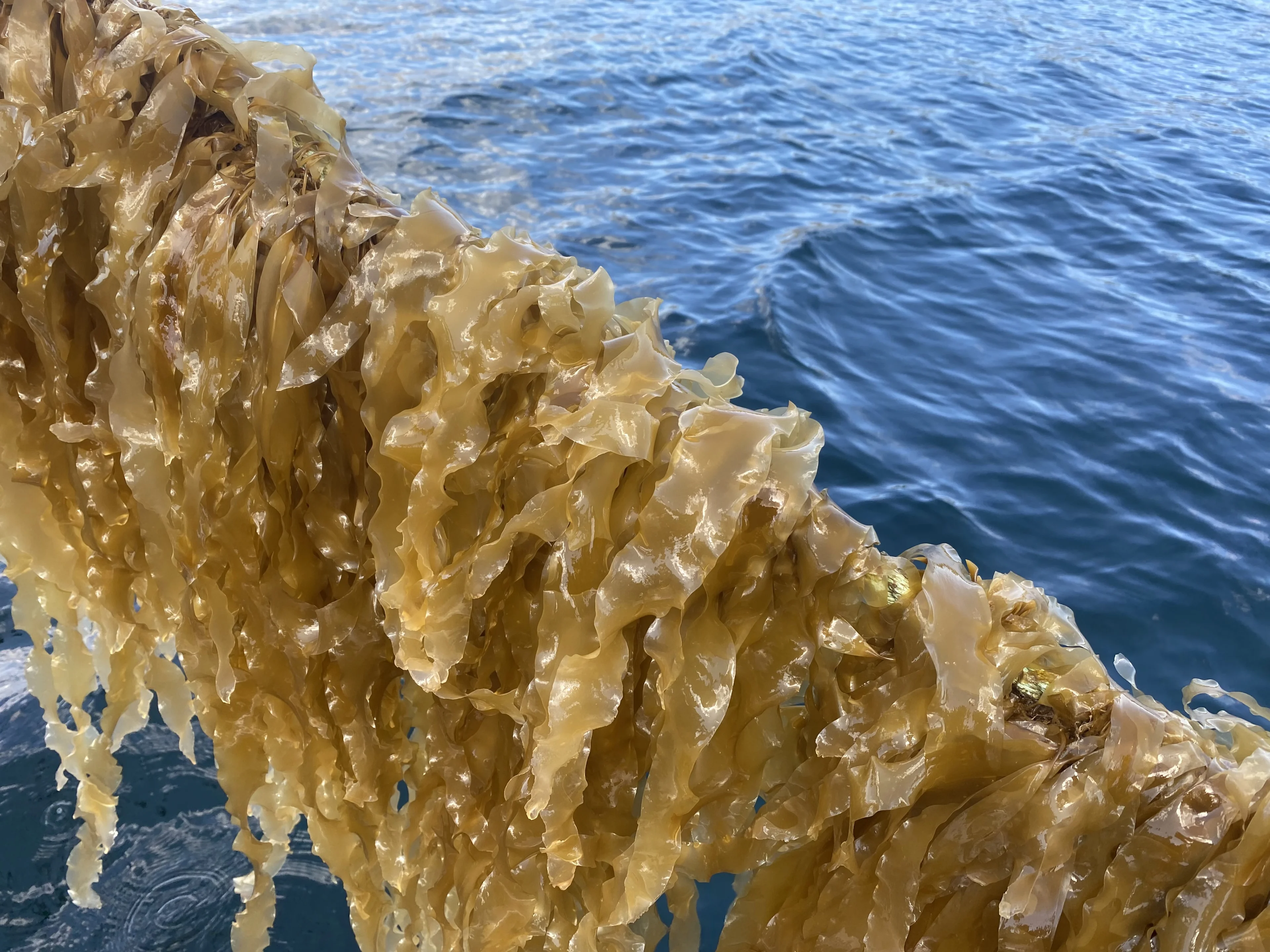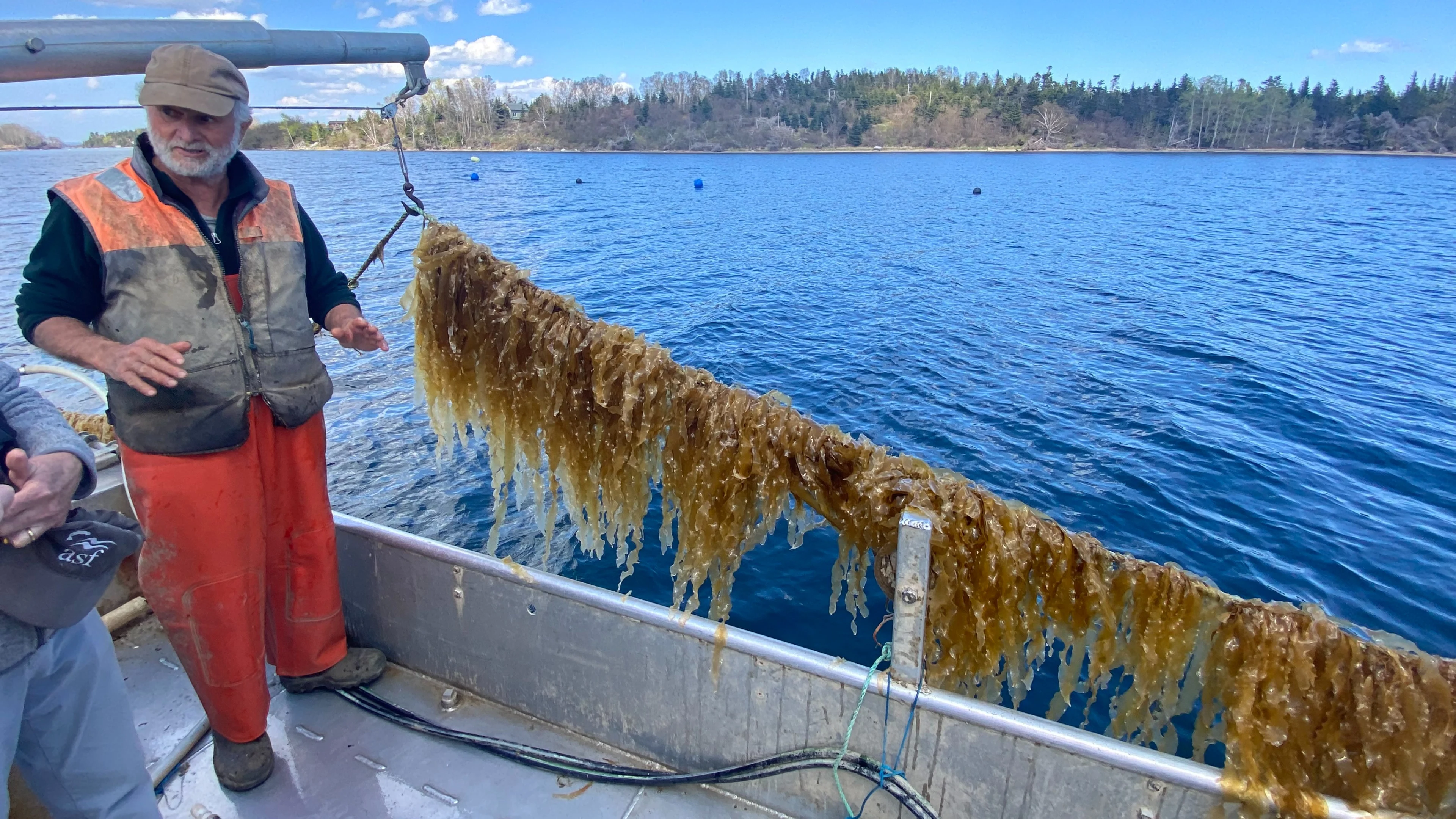
Kelp Wanted: Interest in kelp farming grows in Atlantic Canada
Nova Scotia’s fisheries department says there’s been a boom in applications for kelp farming, but many still face barriers growing golden leaves under the sea.
Kelp farming has been getting lots of attention in recent years as a sustainable crop that can also help in reducing greenhouse gas emissions.
The United Nations has even identified seaweed aquaculture as a way to combat climate change.
Follow The Weather Network's climate coverage on Instagram here
Kelp captures what is known as blue carbon beneath the ocean’s surface in the same way trees capture it on land: it absorbs carbon dioxide and produces oxygen. Kelp farming is considered sustainable because nothing is being taken from the wild to produce large amounts of it other than the nutrients in the water it needs.
High in nutrients, powdered kelp has been used in all sorts of products, including health and beauty, while many restaurants want it for serving fresh to market.
Wendy Vissers, a marine plants advisor with Nova Scotia’s Department of Fisheries and Aquaculture, says there’s been a boom in applications over the past three years.

Peter Darnell next to a line of kelp he planted this past December. Kelp grows best during the cold months of the year in Nova Scotia. (Nathan Coleman/TWN)
If you’re looking for a brand new site to grow kelp, the process is the same as it would be for a new shellfish or fin fish farm by going through an independent aquaculture review board, which can be an onerous task to navigate with so much regulatory review. However, they are currently looking at ways to expedite the process for seaweed.
The other and faster option is to partner with a shellfish farmer who already has an operation.
“In existing shellfish farms, the equipment and the gear required for seaweed farms is extremely similar and it’s simply a matter of amending their lease and license to add those seaweed species to it. And we’ve even streamlined that process a bit for amendments for marine plants,” Vissers told The Weather Network.
She says south of the border, in Maine, there is experimental permitting that doesn’t go through the same level of review as a shellfish farm but the sites are restricted in size, which can impact market access.
Ecology Action Centre associate director of marine programs Shannon Arnold is hopeful more people can get into kelp farming while the Canadian market expands.
“Our neighbours just down south, they're giving out these experimental licenses. It's taken years for people to try and get a permit to farm. And this is really low risk. It's low impact,” Arnold told The Weather Network. “So we're really pushing the government to make it easier for small folks to get into it, and the government has said that they are working on that."
Ecology Action Centre recently put on a kelp fest in Halifax, N.S., to encourage people to explore the possibility of farming it themselves.
Watch the video above to find out more.
Thumbnail image: Kelp captures blue carbon beneath the surface in the same way trees capture it on land. (Nathan Coleman/TWN)

